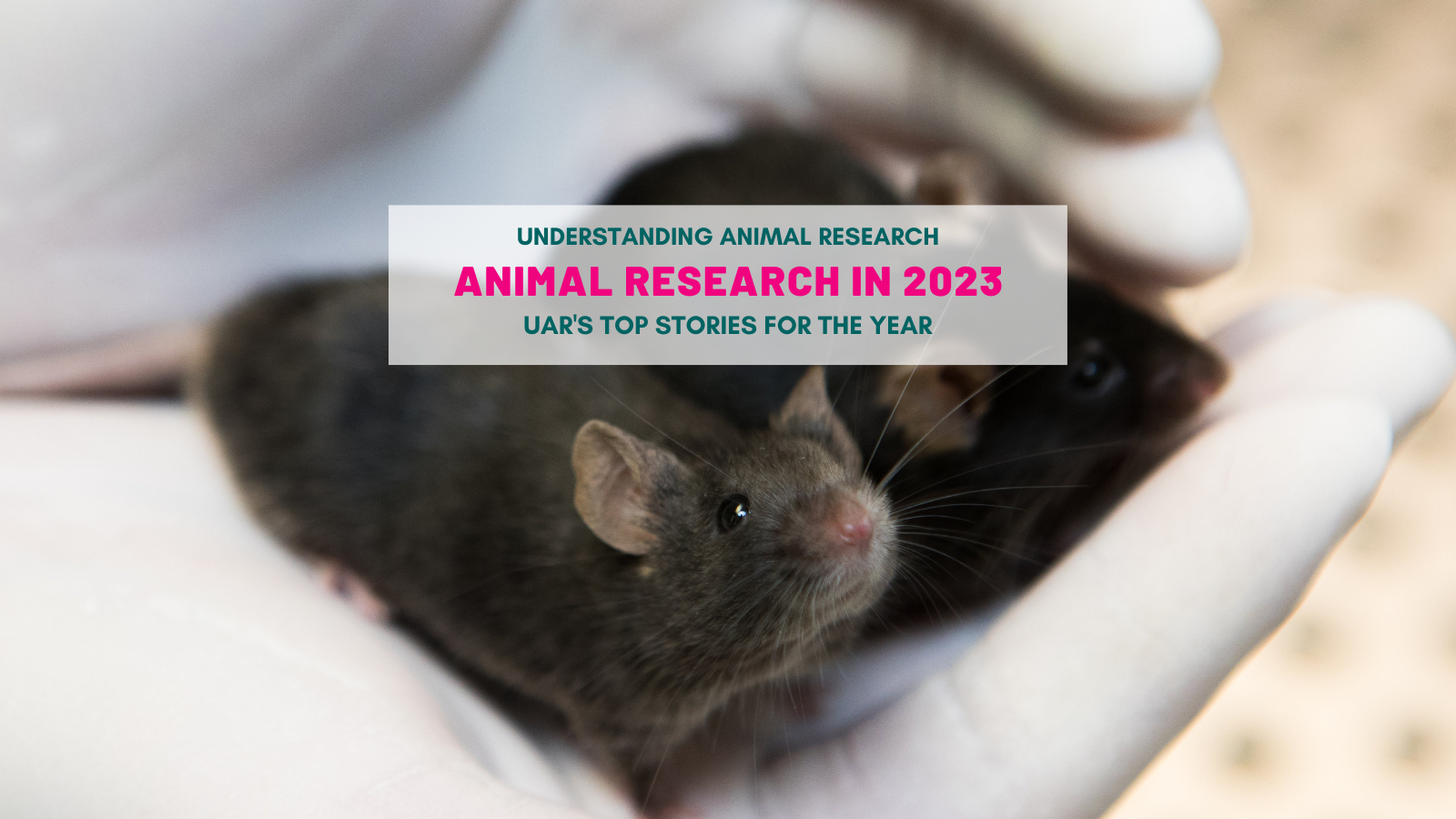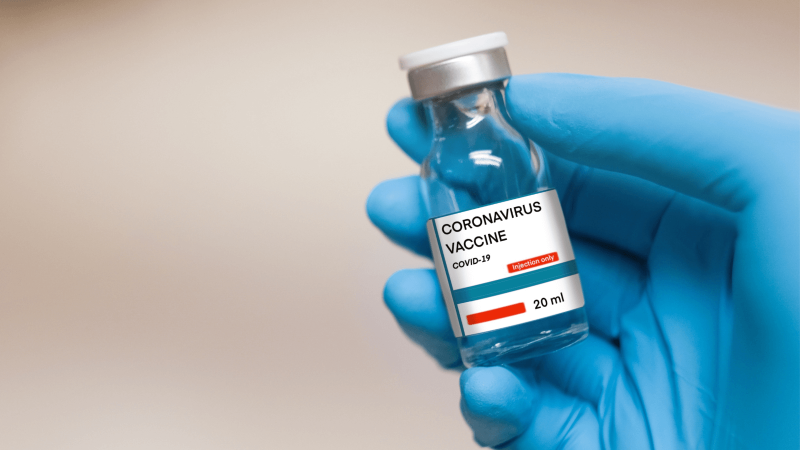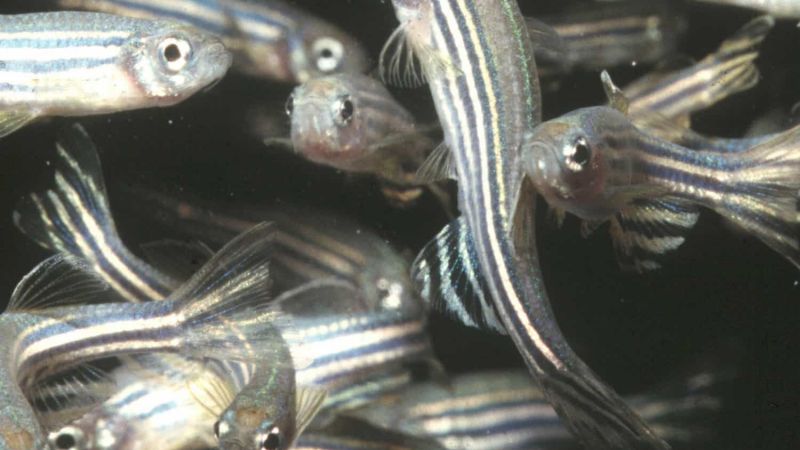
At Understanding Animal Research, we make it our mission to keep you informed about developments in the world of animal research. To finish the year, here is a list of the ten stories that have made the deepest impression on us in 2023, all of them offering hope and inspiration.
1. A new drug for Alzheimer’s, donanemab
A landmark drug, donanemab, was hailed earlier this year as a turning point in the fight against Alzheimer's after a global trial confirmed it helps curb cognitive decline. Although not a cure, donanemab is a disease-modifying treatment. It is a monoclonal antibody treatment based on a humanised version of a mouse antibody. It relieves symptoms, slowing down memory loss and intellectual decline in people living with early-stage Alzheimer’s disease, and also appears to be effective against one of the root causes of the disease. These positive results in animal and human trials are extremely encouraging, but, donanemab will still need to be approved by both the MHRA and NICE before becoming available in the UK through the NHS. Meanwhile, several other trials are being conducted with donanemab.
2. The first ever womb transplant in the UK
Surgeons from Churchill hospital in Oxford announced earlier this year the first successful womb transplant in the UK. Since the 1970s, researchers from around the world studying animals such as rats, mice, rabbits, pigs, sheep, and primates, have been working on making womb transplants a reality. The Churchill hospital operation opens up the possibility that this research could soon benefit many more women in the UK and elsewhere.
3. New vaccine technology could protect against a range of coronaviruses and variants
A groundbreaking vaccine technology developed by the University of Cambridge and DIOSynVax has provided protection against all known variants of SARS-CoV-2 as well as other major coronaviruses, including those that caused the first SARS epidemic in 2002.
Studies in mice, rabbits and guinea pigs found that the vaccine provided a strong immune response against a range of coronaviruses by targeting the parts of the virus that are required for replication using a single digitally designed antigen. Unlike traditional vaccines, which are strain-specific, this approach aims to protect against a wide variety of future coronavirus variants, offering a significant advance in vaccine technology.
4. Quick-acting male birth control drug shows promise in mice
An experimental eye-disease drug which targeted a molecular pathway known to be essential to male fertility, was shown earlier this year to affect the mobility of free-swimming mouse sperm. An improved version of the drug was successful at stopping sperm from swimming and maturing within 30 minutes. After 2.5 hours some sperm began to regain normal function and mouse fertility began to return. This drug has the potential to be used as an on-demand, short acting, reversible male contraceptive.
https://www.nature.com/articles/s41467-023-36119-6
https://www.washingtonpost.com/science/2023/02/14/male-birth-control-drug-study/
5. Type 2 diabetes drug could treat autoimmune disorders
Researchers at Swansea University have discovered that a drug, canagliflozin (also known as Invokana), commonly used to treat type 2 diabetes may be suitable for treating autoimmune disorders such as rheumatoid arthritis and systemic lupus erythematosus. Canagliflozin helps control blood sugar levels in people with type 2 diabetes but it also targets T-cells, which form an essential component of the immune system but have been observed to attack healthy tissues in people with autoimmune diseases. Canagliflozin was tested on mice, rats, dogs, and humans during its development as a drug to treat diabetes.
6. A naturally occurring bacterium to help eradicate malaria
A strain of Delftia tsuruhatensis bacterium is capable of inhibiting Plasmodium falciparum, the parasite responsible for malaria found in mosquitoes. The bacterium drastically reduces the malaria parasite burden in mosquitoes, potentially reducing transmission to humans significantly. The study suggests that the bacterium has the potential to affect all malaria parasites that infect humans with a low likelihood of mosquitoes or the malaria parasite developing resistance. The bacterium occurs naturally in several different ecosystems which it also increases the probability that it can be safely released into the environment.
7. World-first, gene-editing treatment approved for blood disorders in the UK
The UK has become the first country in the world to approve gene editing as a potential cure for two inherited blood disorders: sickle-cell disease: and transfusion-dependent beta thalassaemia. In a technique originally developed using animals, patients' bone marrow stem cells are modified in the laboratory using CRISPR gene editing technology and then reintroduced to the patients, enabling them to produce functional haemoglobin. The approval of this gene therapy is a milestone in what could be the transformative impact of CRISPR technology in addressing genetic conditions.
8. A Vaccine for the urgent fungal threat of Candida auris
Candida auris is a drug-resistant fungus that kills 30-70% of those infected. The Lundquist Institute has created a vaccine that effectively treats mice infected with C. auris. The vaccine used to immunise mice is composed of dual Candida cell surface antigens which, upon vaccination, produce neutralising and immune enhancing antibodies. The vaccine also induces T-cell immunity against the fungus, allowing mice to survive the infection. The next step is human trials.
9. Researchers image adaptive immune systems at work in fish for the first time
For the first time, researchers have imaged the adaptive immune system of zebrafish. The study tracked the movement of immune cells throughout the zebrafish in exceptional detail. The stunning images produced show in detail the cells’ systematic circulation around the body. Unlike mammals, zebrafish (and many other animals) do not have a network of lymph nodes, the bean-shaped organs that play a key role in mammalian adaptive immune systems.
https://news.wisc.edu/in-a-first-researchers-image-adaptive-immune-systems-at-work-in-fish/
10. Plastic particles can enter the brain
In studies using mice and computer models, scientists have shown that tiny plastic particles after being ingested can pass through the protective blood-brain barrier. In mice, microplastics were found in the brain just two hours after being ingested, . The blood-brain barrier is a critical mechanism against toxins, but it is a double-edged sword because it can also prevent medicines from reaching the brain.
Scientists are concerned about the possible effects of micro-plastics inside the brain, potentially increasing the risk of inflammation, neurological disorders or even neurodegenerative diseases such as Alzheimer’s or Parkinson’s. Previous studies have shown that microplastics can have serious consequences when passing through other areas of the body, such as the intestine.
https://www.upi.com/Science_News/2023/04/24/animal-study-plastic-particles-brain/9021682355505/
Bonus: FDA no longer needs to require animal tests before human drug trials
In January, The FDA in the United States announced that they will no longer require animal tests before drugs move into human trials. This replaces the 1938 provision that potential drugs be tested for safety and efficacy in animals. The change in law allows the FDA to promote a new drug or treatment to human trials with data gained either through animal tests or non-animal methodologies (NAMs), or a combination of the approaches.
https://www.science.org/content/article/fda-no-longer-needs-require-animal-tests-human-drug-trials
Last edited: 20 December 2023 17:04



